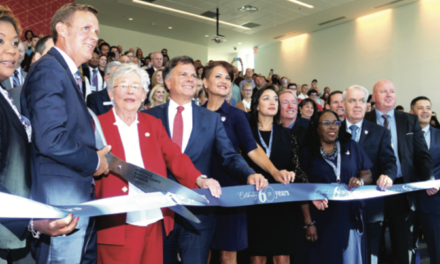By Tashi McQueen
AFRO Political Writer
tmcqueen@afro.com

The much anticipated 2024 Maryland General Assembly commenced on Jan. 10. Though the first day is largely ceremonial, hundreds of pieces of legislation have already been filed and assigned to committees.
The 90-day session will feature policies aiming to reduce gun violence trauma, protect youth and hold them accountable for their actions and ensure legislators are executing their roles to the fullest.
“As we’re focused on addressing the issues around juvenile crime, I think that we have to be thoughtful on how we do it,” said Del. Marlon Amprey (D-Md.-40). “I’m looking forward to figuring out how we can hold accountable, but at the same time, taking care of our young people holistically.”
Amprey pre-filed HB 121, which aims to limit the number of police training facilities near hospitals, school buildings, state correctional facilities and juvenile locations.
“Training locations are next door to the prisons. When you are walking around in the yard on the premises, you can hear gunfire throughout the day,” said Amprey. “If they’re really trying to become better people and leave that life behind, hearing gunfire throughout the day is not going to help them.”
“We can’t fix it overnight and we’ll have to find those kinds of spaces somewhere else or move it indoors, but it’s going to cost money, and we don’t have a lot of money right now,” continued Amprey. “I think the ultimate fix is what can we do around firing range times to make sure those who are incarcerated either have earmuffs or they’re not outside. I’m up for any solution, but I know for a fact we cannot have repetitive gunfire around our prisons. That is just not humane.”
The first hearing on this legislation will be held on Jan. 23 at 2 p.m. in the Maryland House Appropriations Committee.
Amprey is re-introducing his artistic expression bill, which aims to prohibit creative work such as rap music from being used in criminal cases in Maryland.
“The Judiciary Committee had a heavy plate last session and I think that our bill just wasn’t a priority at the time. This year, they have a little bit of a lighter load as far as major bills,” said Amprey. “We’re looking forward to continuing to press on that matter and collect more people that have more information around how it truly impacts the state of Maryland.”
Del. Regina T. Boyce (D-Md.-43A) will be working to make HB 80 law, which she has been trying to do for the last five years.
“ that an elected official cannot also be an elected central committee member,” said Boyce. “There’s no need for an elected official to be an organizing member of a party when the committee essentially works on behalf of a candidate from each party.”
Boyce said central committees are organizing bodies that help candidates aligned with a political party, such as Republicans and Democrats, garner votes and fundraise for their campaigns.
“As an elected official, there’s no reason for me to be on the committee. When it comes to organizing, doing the work, I’m not going to be available because I’m doing the work of being a delegate or a council member,” said Boyce.
This legislation was heard on Jan. 17 at 1 p.m. in the Maryland House Ways and Means Committee.
Sen. Jill P. Carter (D-Md.-41) is re-introducing the NyKayla Strawder Memorial Act, SB 2.
NyKayla Strawder was a 15-year-old girl who was shot and killed by a nine-year-old in Baltimore in 2022. Due to the juvenile justice reform law, the nine-year-old could not be charged with the crime. His grandmother, April Gaskins, has since been found guilty and sentenced to three years in prison for reckless endangerment and one year for firearm access by a minor, according to the Office of the State’s Attorney Baltimore City.
“After talking to the family and other people at the Department of Juvenile Services, it is my belief that we need to mandate that some type of evaluation and assessment of that nine-year-old,” said Carter.
Currently, a child in need of supervision (CINS) can be filed when an intake officer suspects a child needs guidance, but it’s not required. Carter aims to change this with her legislation.
“If a child commits a violent or a felonious act and they are not eligible for prosecution because they’re too young, then it would mandate that a CINS petition would automatically be filed,” said Carter.
Carter sponsored the Juvenile Justice Reform Act in 2022.
This legislation has been assigned to the Maryland Senate Judicial Proceedings Committee but has not been given a hearing date yet.
Marylanders can keep up with what‘s happening in the general assembly, including bills introduced and hearing dates at mgaleg.maryland.gov .
Tashi McQueen is a Report For America Corps member.
The post Maryland General Assembly begins 2024 legislative session appeared first on AFRO American Newspapers.










